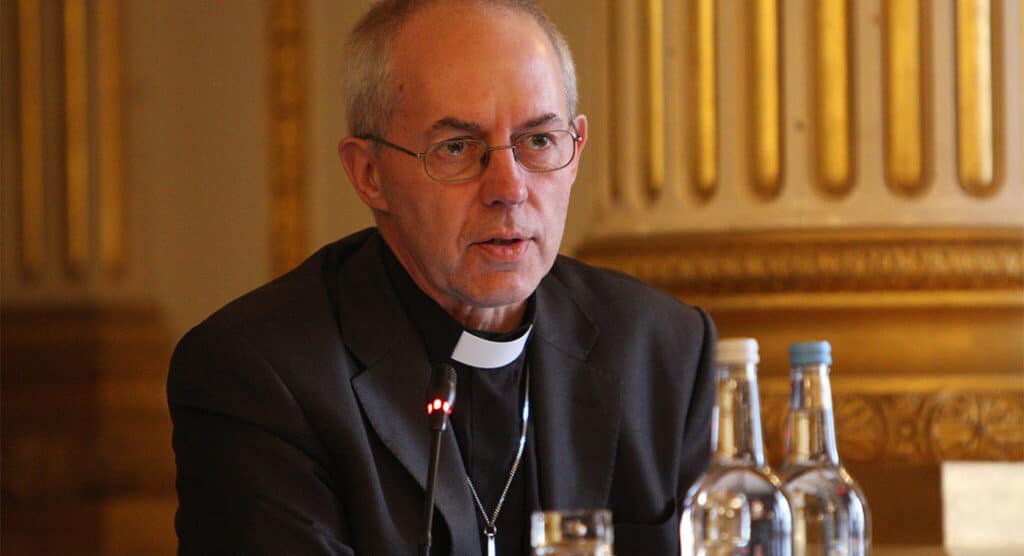Is the Archbishop of Canterbury personally responsible for the decline in church attendance?

The Archbishop of Canterbury has said that the decline in church attendance during his tenure is something ‘that I personally I count as failure’.
I don’t think the Archbishop is personally responsible for the decline in church attendance or that it is a specific failure on his part. As he rightly says, God is sovereign and he produces the fruit.
But Welby is responsible for what he has done and said, (or not said) and I would suggest he has presided over a decline in the clarity of the Church of England on issues of sexuality and marriage issues and has made the public face of the church politicised as a government opposition.
For example, The New Statesman published their ‘Left Power List – a guide to the 50 most influential people in progressive politics… those who identify with the social democratic/socialist tradition’. In this hall of fame, the Archbishop of Canterbury comes in at number 27 in recognition that he ‘has spent the past decade as a bold critic of the central tenets of Tory policy.’
I have no objection to social democratic policies per se and I warmly encourage pastors or church denominational network leaders to preach on political issues but at the level of principle not specific policy, unless there is a clear-cut Christian view on the topic (such as for abortion or marriage). That is not to say that other topics like immigration or economic policy are ignored – we have written many times on these topics on this blog – but we stick with what the Bible clearly says when we are emphatic and are more tentative when drilling down to policy, party and politicians.
We also need to weigh carefully what we say depending on our role. There is a different responsibility for leaders who are seen as representing and speaking to their congregations or churches and what we might say as an individual speaking giving our personal opinions.
Pastors and leaders of Christian organisations need to consider the danger of causing divisions in the church – both locally and denominationally – if you express a political view which is clearly a matter of wisdom and judgement. You may make statements in good faith, and be open to question, but people reading or listening may just put you in the box of a political opponent and it will harm your spiritual effectiveness. It also suggests your priorities are more political or more about publicity than gospel and holiness.
Be political but let’s do it in a way that is about God’s salvation and God’s kingdom and let’s make sure God’s voice is heard the loudest.

Related articles
Stay connected with our monthly update
Sign up to receive the latest news from Affinity and our members, delivered straight to your inbox once a month.



